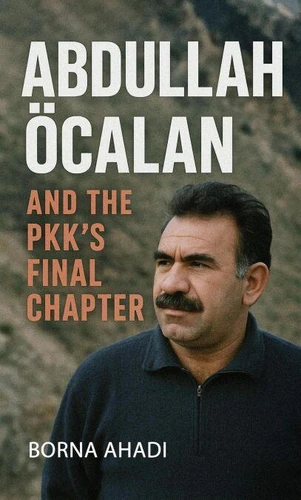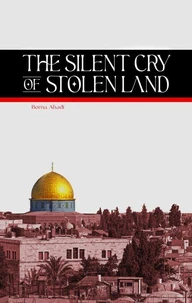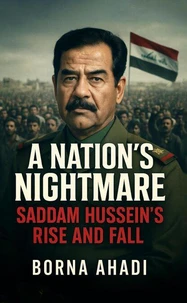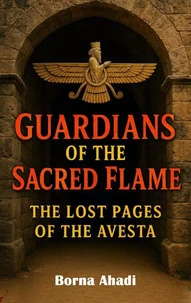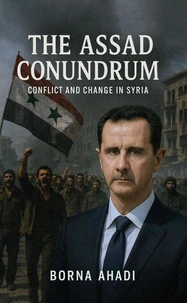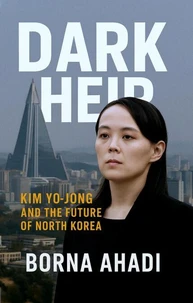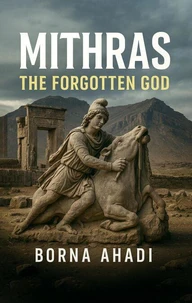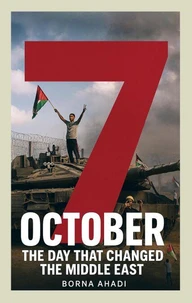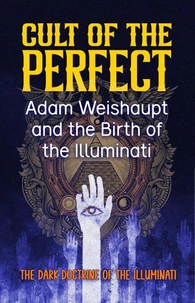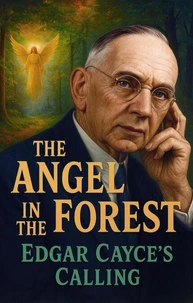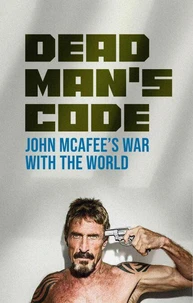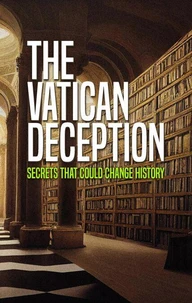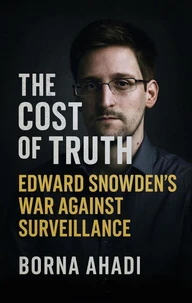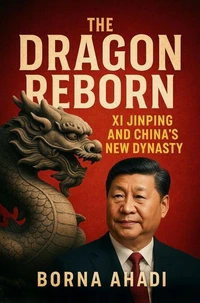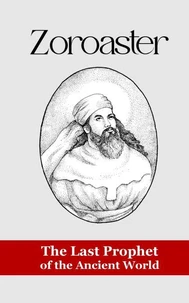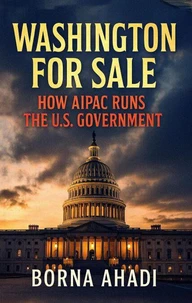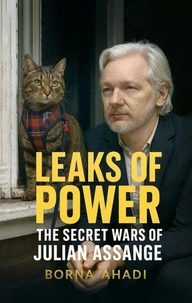Nouveauté
Abdullah Öcalan and the PKK’s Final Chapter
Par :Formats :
Disponible dans votre compte client Decitre ou Furet du Nord dès validation de votre commande. Le format ePub est :
- Compatible avec une lecture sur My Vivlio (smartphone, tablette, ordinateur)
- Compatible avec une lecture sur liseuses Vivlio
- Pour les liseuses autres que Vivlio, vous devez utiliser le logiciel Adobe Digital Edition. Non compatible avec la lecture sur les liseuses Kindle, Remarkable et Sony
 , qui est-ce ?
, qui est-ce ?Notre partenaire de plateforme de lecture numérique où vous retrouverez l'ensemble de vos ebooks gratuitement
Pour en savoir plus sur nos ebooks, consultez notre aide en ligne ici
- FormatePub
- ISBN8227948816
- EAN9798227948816
- Date de parution11/08/2025
- Protection num.pas de protection
- Infos supplémentairesepub
- ÉditeurBig Dog Books, LLC
Résumé
In the annals of modern revolutionary movements, few figures loom as large or as polarizing as Abdullah Öcalan. Once the fiery leader of the Kurdistan Workers' Party (PKK), Öcalan's life and ideas have shaped the course of the Kurdish struggle for nearly half a century. From his days as a young militant inspired by Marxist-Leninist ideals to his transformation into an imprisoned philosopher championing grassroots democracy, gender equality, and ecological justice, his journey mirrors the broader evolution of the PKK itself.
Abdullah Öcalan and the PKK's Final Chapter offers a definitive exploration of this transformation - from a war for statehood to a movement seeking to redefine freedom itself. Drawing on history, politics, and first-hand accounts, the book examines the PKK's early insurgency, its bloody confrontations with the Turkish state, and the ideological reawakening that emerged from the isolation of Imrali Island prison.
The narrative delves into the PKK's pivotal role in shaping the Kurdish regions of Turkey, Syria, Iraq, and Iran; its alliances and rivalries with other Kurdish factions; and its decisive interventions in regional conflicts, including the fight against ISIS. Readers will gain insight into the Rojava experiment in Syria, where Öcalan's vision of democratic confederalism was tested amid war and shifting alliances.
This work is not only an account of battles fought in mountains and cities, but also of ideas waged in books, speeches, and political movements. It explores the deep fractures between Kurdish political entities, the pressures of regional geopolitics, and the PKK's efforts to survive under relentless military and diplomatic pressure. Meticulously researched and compellingly written, Abdullah Öcalan and the PKK's Final Chapter challenges simplistic narratives about terrorism and liberation, presenting a nuanced portrait of a movement at the crossroads of ideology, survival, and transformation.
Whether you approach it as a student of Middle Eastern history, a reader fascinated by revolutionary thought, or someone seeking to understand one of the world's longest-running insurgencies, this book will leave you with a deeper understanding of the man, the movement, and the cause that refuses to fade. In the end, the story of Abdullah Öcalan and the PKK is not just about the past - it is about the enduring question of what freedom means in a world of shifting powers and endless struggle.
Abdullah Öcalan and the PKK's Final Chapter offers a definitive exploration of this transformation - from a war for statehood to a movement seeking to redefine freedom itself. Drawing on history, politics, and first-hand accounts, the book examines the PKK's early insurgency, its bloody confrontations with the Turkish state, and the ideological reawakening that emerged from the isolation of Imrali Island prison.
The narrative delves into the PKK's pivotal role in shaping the Kurdish regions of Turkey, Syria, Iraq, and Iran; its alliances and rivalries with other Kurdish factions; and its decisive interventions in regional conflicts, including the fight against ISIS. Readers will gain insight into the Rojava experiment in Syria, where Öcalan's vision of democratic confederalism was tested amid war and shifting alliances.
This work is not only an account of battles fought in mountains and cities, but also of ideas waged in books, speeches, and political movements. It explores the deep fractures between Kurdish political entities, the pressures of regional geopolitics, and the PKK's efforts to survive under relentless military and diplomatic pressure. Meticulously researched and compellingly written, Abdullah Öcalan and the PKK's Final Chapter challenges simplistic narratives about terrorism and liberation, presenting a nuanced portrait of a movement at the crossroads of ideology, survival, and transformation.
Whether you approach it as a student of Middle Eastern history, a reader fascinated by revolutionary thought, or someone seeking to understand one of the world's longest-running insurgencies, this book will leave you with a deeper understanding of the man, the movement, and the cause that refuses to fade. In the end, the story of Abdullah Öcalan and the PKK is not just about the past - it is about the enduring question of what freedom means in a world of shifting powers and endless struggle.
In the annals of modern revolutionary movements, few figures loom as large or as polarizing as Abdullah Öcalan. Once the fiery leader of the Kurdistan Workers' Party (PKK), Öcalan's life and ideas have shaped the course of the Kurdish struggle for nearly half a century. From his days as a young militant inspired by Marxist-Leninist ideals to his transformation into an imprisoned philosopher championing grassroots democracy, gender equality, and ecological justice, his journey mirrors the broader evolution of the PKK itself.
Abdullah Öcalan and the PKK's Final Chapter offers a definitive exploration of this transformation - from a war for statehood to a movement seeking to redefine freedom itself. Drawing on history, politics, and first-hand accounts, the book examines the PKK's early insurgency, its bloody confrontations with the Turkish state, and the ideological reawakening that emerged from the isolation of Imrali Island prison.
The narrative delves into the PKK's pivotal role in shaping the Kurdish regions of Turkey, Syria, Iraq, and Iran; its alliances and rivalries with other Kurdish factions; and its decisive interventions in regional conflicts, including the fight against ISIS. Readers will gain insight into the Rojava experiment in Syria, where Öcalan's vision of democratic confederalism was tested amid war and shifting alliances.
This work is not only an account of battles fought in mountains and cities, but also of ideas waged in books, speeches, and political movements. It explores the deep fractures between Kurdish political entities, the pressures of regional geopolitics, and the PKK's efforts to survive under relentless military and diplomatic pressure. Meticulously researched and compellingly written, Abdullah Öcalan and the PKK's Final Chapter challenges simplistic narratives about terrorism and liberation, presenting a nuanced portrait of a movement at the crossroads of ideology, survival, and transformation.
Whether you approach it as a student of Middle Eastern history, a reader fascinated by revolutionary thought, or someone seeking to understand one of the world's longest-running insurgencies, this book will leave you with a deeper understanding of the man, the movement, and the cause that refuses to fade. In the end, the story of Abdullah Öcalan and the PKK is not just about the past - it is about the enduring question of what freedom means in a world of shifting powers and endless struggle.
Abdullah Öcalan and the PKK's Final Chapter offers a definitive exploration of this transformation - from a war for statehood to a movement seeking to redefine freedom itself. Drawing on history, politics, and first-hand accounts, the book examines the PKK's early insurgency, its bloody confrontations with the Turkish state, and the ideological reawakening that emerged from the isolation of Imrali Island prison.
The narrative delves into the PKK's pivotal role in shaping the Kurdish regions of Turkey, Syria, Iraq, and Iran; its alliances and rivalries with other Kurdish factions; and its decisive interventions in regional conflicts, including the fight against ISIS. Readers will gain insight into the Rojava experiment in Syria, where Öcalan's vision of democratic confederalism was tested amid war and shifting alliances.
This work is not only an account of battles fought in mountains and cities, but also of ideas waged in books, speeches, and political movements. It explores the deep fractures between Kurdish political entities, the pressures of regional geopolitics, and the PKK's efforts to survive under relentless military and diplomatic pressure. Meticulously researched and compellingly written, Abdullah Öcalan and the PKK's Final Chapter challenges simplistic narratives about terrorism and liberation, presenting a nuanced portrait of a movement at the crossroads of ideology, survival, and transformation.
Whether you approach it as a student of Middle Eastern history, a reader fascinated by revolutionary thought, or someone seeking to understand one of the world's longest-running insurgencies, this book will leave you with a deeper understanding of the man, the movement, and the cause that refuses to fade. In the end, the story of Abdullah Öcalan and the PKK is not just about the past - it is about the enduring question of what freedom means in a world of shifting powers and endless struggle.

